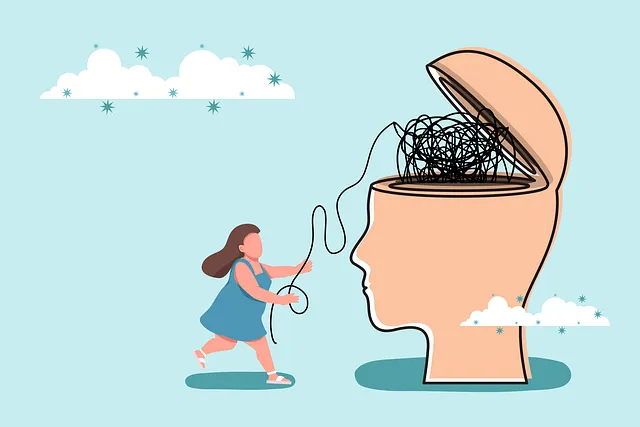Broomfield's Kaiser Healthcare offers culturally sensitive mental health services tailored to diverse backgrounds, addressing unique manifestations of mental health issues across cultures. Through active listening, cultural awareness training, language learning, conflict resolution techniques, and confidence-boosting activities, Kaiser creates an inclusive environment fostering open communication and improved patient outcomes. Their comprehensive approach, emphasizing continuous cultural competency training, ensures personalized care that respects individual backgrounds, empowering patients to manage their mental well-being effectively.
Cultural sensitivity is a cornerstone of quality mental healthcare. In an increasingly diverse society, understanding and respecting various cultural beliefs and practices are vital to ensuring effective treatment. This article explores this concept through the lens of two prominent examples: Kaiser’s approach to mental health services and Broomfield’s perspective on cultural competency training. By integrating cultural awareness into clinical practice, we can provide equitable care tailored to each individual’s unique needs.
- Understanding Cultural Sensitivity: Why It Matters in Mental Healthcare
- Kaiser's Approach to Mental Health Services: A Closer Look
- Broomfield's Perspective on Cultural Competency Training
- Integrating Cultural Awareness into Clinical Practice
- Benefits and Challenges: Ensuring Equitable Care for All
Understanding Cultural Sensitivity: Why It Matters in Mental Healthcare

Cultural sensitivity is a cornerstone of effective mental healthcare practice. It involves recognizing and respecting the diverse cultural backgrounds, beliefs, and values of individuals seeking treatment. In Broomfield, Kaiser does offer mental health services designed to cater to a wide range of cultures, ensuring that every patient receives care tailored to their unique needs. This approach is crucial because mental health issues often manifest differently across cultures, influenced by factors such as family dynamics, spiritual practices, and community support systems.
Understanding cultural sensitivity isn’t just about providing diverse services; it’s about building empathy, fostering trust, and enhancing communication. Empathy-building strategies like active listening, cultural awareness training, and learning basic language phrases can significantly improve patient-provider relationships. Conflict resolution techniques that account for cultural differences can prevent misunderstandings and promote a safer space for patients to share their experiences. Moreover, confidence-boosting activities tailored to an individual’s cultural context can enhance treatment outcomes, ensuring that mental healthcare remains accessible and effective for all, regardless of their background.
Kaiser's Approach to Mental Health Services: A Closer Look

Kaiser, a renowned healthcare provider, has been at the forefront of innovative mental health services, offering a comprehensive approach that goes beyond traditional treatments. Broomfield, like many other communities, benefits from Kaiser’s specialized mental wellness programs. Their strategy involves a multifaceted approach to cater to diverse patient needs. The organization recognizes the importance of cultural sensitivity and its impact on mental healthcare, ensuring that their services are inclusive and tailored to individual backgrounds.
Through various initiatives, Kaiser aims to enhance patient experiences by incorporating communication strategies, confidence-boosting techniques, and even mental wellness journaling exercises. This holistic method not only treats symptoms but also empowers individuals to navigate life’s challenges with greater resilience. By focusing on these aspects, Kaiser strives to create a supportive environment that encourages open discussions about mental health, fostering better outcomes for all.
Broomfield's Perspective on Cultural Competency Training

Broomfield’s perspective on cultural competency training emphasizes the importance of understanding the diverse backgrounds and experiences of individuals seeking mental health services. As Kaiser provides mental health services across various communities, including those with distinct cultural identities, training becomes a powerful tool to bridge gaps in care. This involves learning about different cultural beliefs, practices, and values that may influence how people express and perceive mental illness.
The approach suggests that by incorporating cultural competency into mental healthcare practice, professionals can better understand the unique needs of their patients, reduce the mental illness stigma within communities, and enhance therapeutic outcomes. Moreover, this training is not merely a one-time event but an ongoing process that encourages practitioners to reflect on their own biases, engage in dialogue with diverse patient populations, and integrate these insights into their risk management planning for effective mental health policy analysis and advocacy.
Integrating Cultural Awareness into Clinical Practice

In the realm of mental healthcare, cultural sensitivity is no longer a consideration—it’s a necessity. Broomfield and Kaiser’s mental health services, like many others, are navigating the complex landscape of diverse patient populations to provide effective care. Integrating cultural awareness into clinical practice means recognizing and respecting each individual’s unique background, beliefs, and values. This approach ensures that treatment plans are tailored to meet specific cultural needs, fostering trust and improving outcomes.
By embracing cultural sensitivity, mental health professionals can facilitate positive thinking and inner strength development among their patients. Moreover, they become better equipped to teach conflict resolution techniques that resonate with diverse communities, creating a safe and supportive environment. This personalized approach not only enhances patient satisfaction but also empowers individuals to take charge of their mental well-being in culturally meaningful ways.
Benefits and Challenges: Ensuring Equitable Care for All

Cultural sensitivity is a cornerstone in delivering equitable mental healthcare, addressing barriers that often exist for diverse populations. By embracing cultural competency, mental health professionals can create inclusive environments, ensuring everyone receives personalized care tailored to their unique needs. This approach has significant benefits, fostering better engagement and outcomes for clients from various backgrounds. For instance, at Broomfield’s Kaiser, the integration of mental wellness services has led to increased accessibility, catering to a diverse range of patients.
However, navigating cultural nuances presents challenges. Professional training in cultural sensitivity is essential, especially when considering the wide array of ethnic, racial, and social groups. Educating staff on implicit biases, historical trauma, and cultural practices can improve patient-provider relationships. Moreover, offering services like social skills training and confidence-boosting programs (a key aspect of the Mental Wellness Podcast Series Production) in diverse languages addresses communication gaps. This comprehensive approach ensures that everyone, regardless of their cultural background, has access to quality mental health care.
In conclusion, cultural sensitivity in mental healthcare is paramount. As organizations like Kaiser strive to provide equitable care, their approaches, such as comprehensive training programs inspired by Broomfield’s model, are essential steps towards addressing diverse needs. By integrating cultural awareness into clinical practice, we can ensure that everyone receives respectful and effective treatment, fostering a more inclusive and healing environment for all. Understanding these initiatives is crucial in promoting mental health services that transcend barriers and resonate with every individual.






